Ten European friends of Armenia, professors and politicians among them, have gathered together and described their love for Armenia in a book entitled “Armenia Mon Amour: Ten Europeans Speak”. They share their experience in Armenia and Artsakh, write about history and genocide, lavash and brandy as well as their deep love for the Armenian people. The authors of this recently published book have different backgrounds and come from different countries in Europe.
Mediamax has talked to Svante Lundgren, a professor at the Lund University in Sweden and one of the co-editors of the book, and asked him to tell how this project was implemented and what makes this book special.
Ten Friends
How did we become friends of Armenia? This is the exact question that ten authors are answering in this book.
The book is edited by me and Serafim Seppälä (a professor of systematic theology at the University of Eastern Finland). We are good friends and in fact, what brought us together was the common interest in Armenia. At one point we asked each other how non-Armenian people, with no original connections to Armenia, develop this kind of interest and love for the country that they get almost obsessed with it and visit Armenia time after time like Serafim, who has been more than thirty times in your country. So, we knew we are not the only ones and decided to ask some people to write about it and have an anthology where different people would write how they became friends of Armenia.
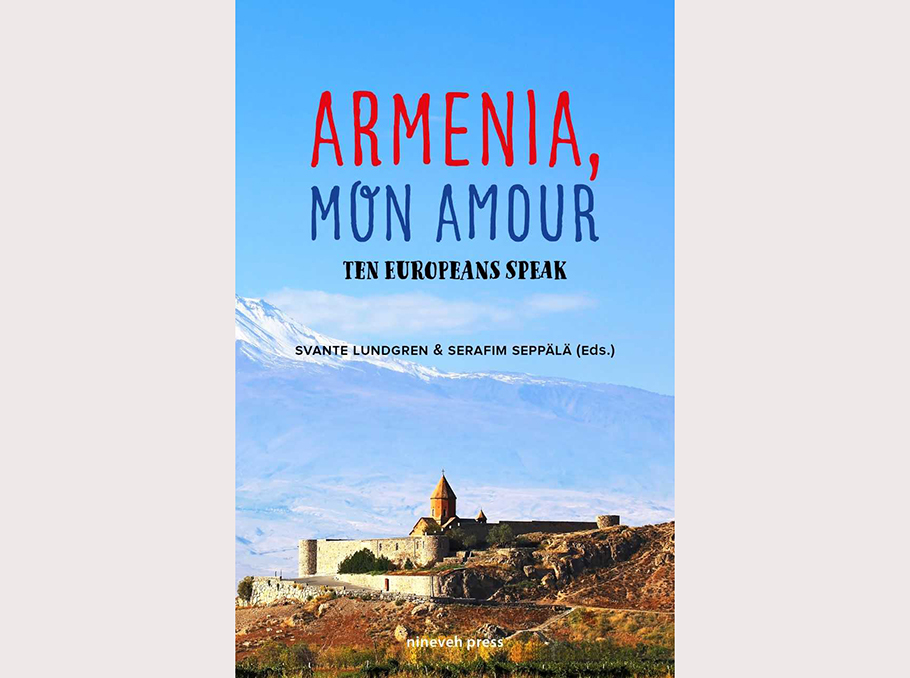
We were able to get a good crowd together. We are ten contributors: Serafim, me and eight other people. Everybody has his/her own story, there is no one way to become a friend of Armenia.
From Tsitsernakaberd to Hollywood
I can take myself as an example. I grew up without having any contact with Armenia, at that time Armenia was a part of the Soviet Union, which I knew almost nothing about. I have always been interested in history, the European history at the Second World War was always fascinating me, through which I read about the Holocaust. By studying it, I also came to know that there had been similar genocides like the Armenian Genocide. I am a university lecturer and my original field was Jewish studies, I wrote two books about the Holocaust.
In 2005, I visited Syria and came back with a huge interest in Christian communities in the Middle East, especially the Assyrians. Because I am a genocide scholar, I also decided to write a book about the Armenian Genocide, which also would target other Christian communities like the Assyrians. While writing this book, I visited Armenia for the first time, I was 48 years old, so I am a very late starter and I am very sorry for that, but better late than never (laughing-Mediamax)!
I liked the country, however, I didn’t come home with a huge fascination and passion. Several years later I was invited to be part of an Armenian film project. It was an Armenian film company which decided to do a documentary about women from the Nordic countries who had been eyewitnesses to the genocide. Because I had written about these women in my book, I was invited to be the narrator of this movie. If not this invitation, I would not have developed this interest in Armenia; it was a real coincidence. The film was shot in nine different countries, so together with a complete Armenian group we travelled and met the local Armenians.
That is why my chapter in the book is called “From Tsitsernakaberd to Hollywood.”
The common thing
As I said, everybody has his/her story, but when you read the book, you can see some similarities.
We all think that it is a beautiful country, but that is not the important thing. What fascinates the authors with Armenia is the culture and people with their kindness and hospitality that we have encountered so many times. Armenia is an old nation, much older than Sweden and other countries, it has a long history, and it is the first Christian nation in the world.
Most of our authors are quite ordinary people, but some are well-known. For example, we have Frank Engel from Luxembourg, who is a former Member of the European Parliament and now is a member of the largest political party in Luxembourg.
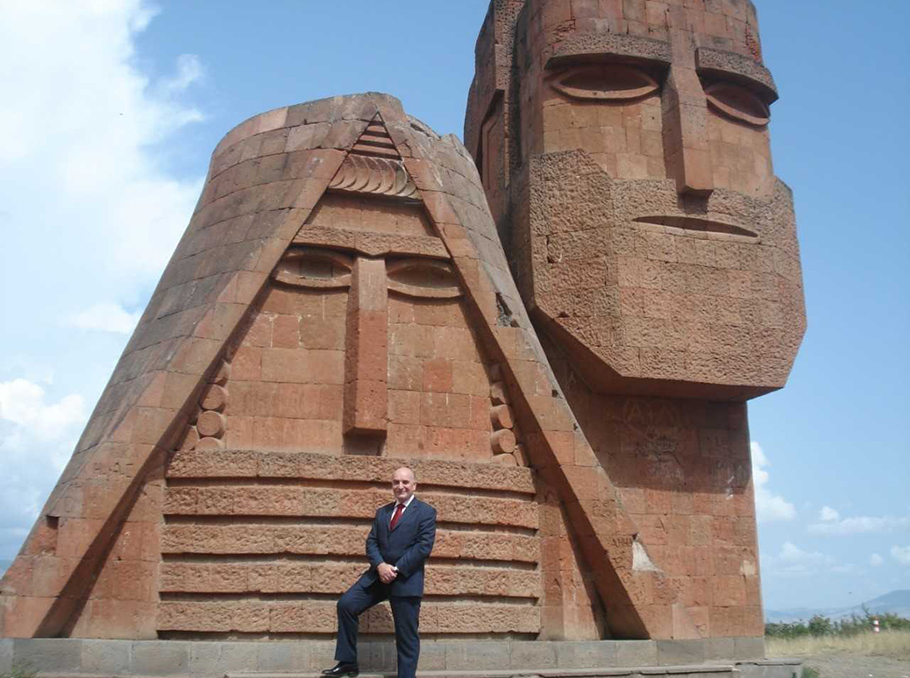 Stephen Pound in Artsakh
Stephen Pound in Artsakh
From the UK we have Stephen Pound, a British Labour Party politician, who was a Member of Parliament. Then we have scholars and journalists, who are known in some circles.
For whom?
I guess, many Armenians will be quite curious about the book because I can imagine that Armenians like to read about how other people look at their country and them.
The book is also for non-Armenians, those who are friends of Armenia, they will also read and recognize themselves in the stories. But we also hope to reach non-Armenian friends of us who might read because it is written by their friend. We really hope that once these people read it, they will be caught by this spirit and will feel the need to visit the country. We want to increase the interest in Armenia, and I hope that every contributor of this book will be an ambassador for it in their country.
The best way to purchase the book is the website: https://armeniamonamour.com. It will also be possible to order it at online bookshops.
Armenia needs more friends
Almost everybody in this book wrote about the experience of visiting not only Armenia but also Artsakh. Now we are in a very special situation, that is, the articles were written before the war, but they will be read after the war. In many ways, you can say what we write there can seem a little bit naïve now, because things have changed so much, but this is not a political book, this is more about the people, the culture and the experience of visiting the country.
Right now, this is an extremely difficult time for Armenia. As friends of Armenia, we tried to raise awareness and influence our governments during the war, but I cannot say that we succeeded very well; it has only shown that Armenia needs more friends, who stand up and raise their voices for Armenia. I cannot say what is going on in Armenia now and what will happen in a month, but I must say that in the long run, I am very optimistic when it comes to Armenia, because I see so much potential in the country and in the people.
Amalie Khachatryan
















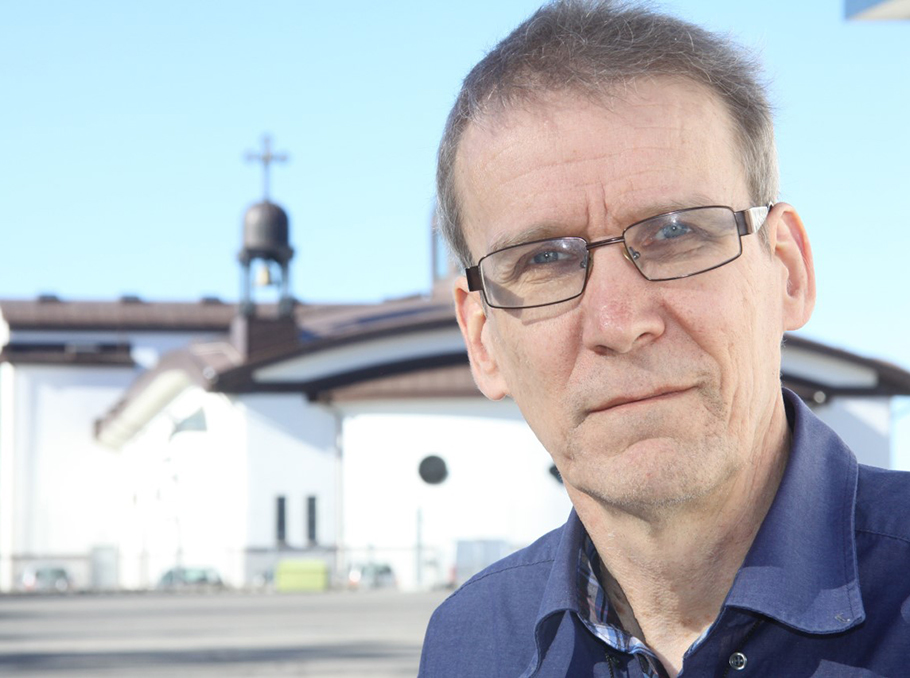

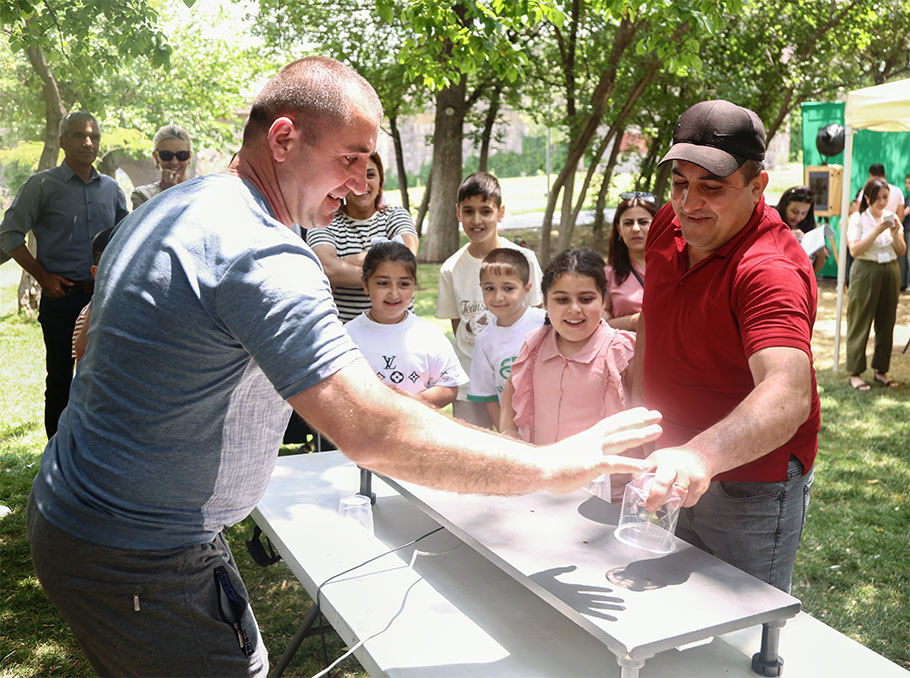
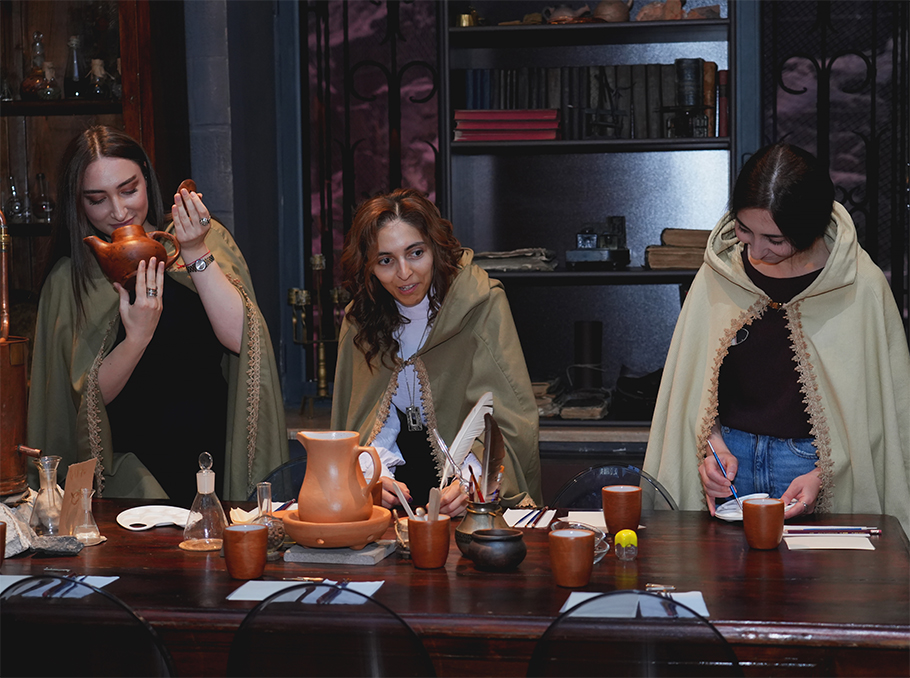
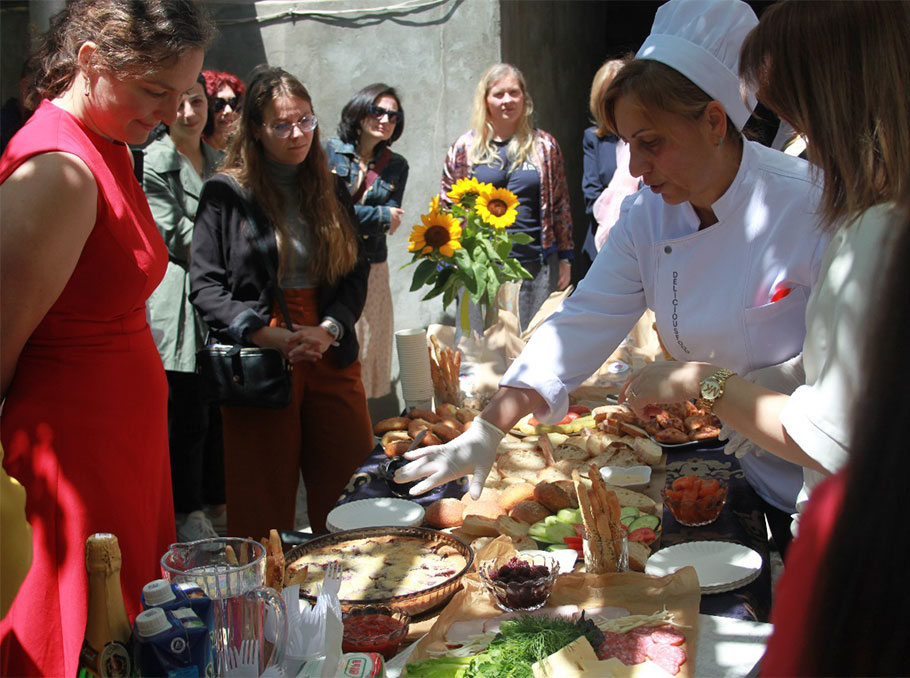
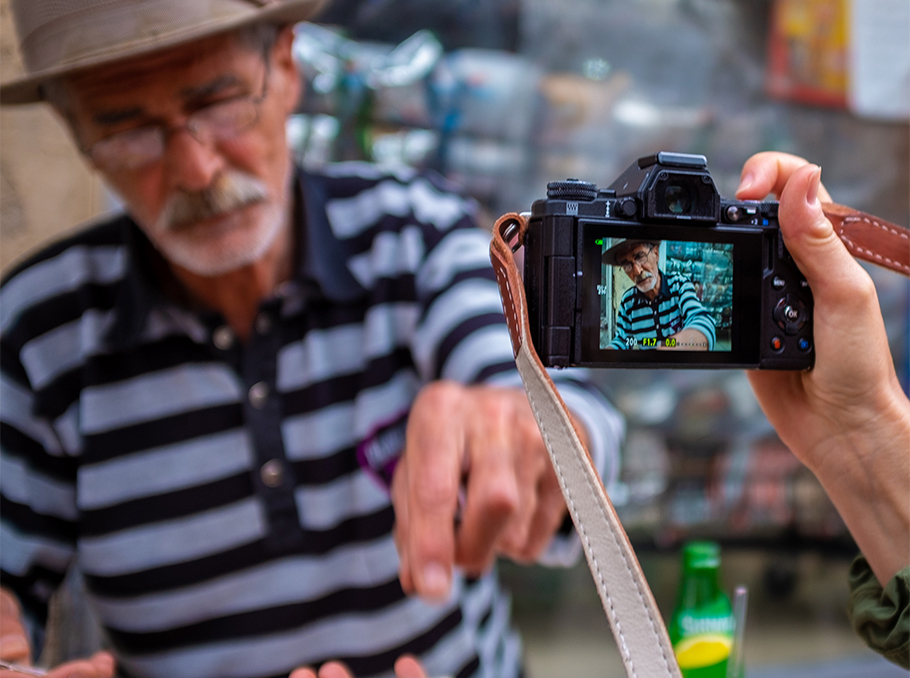
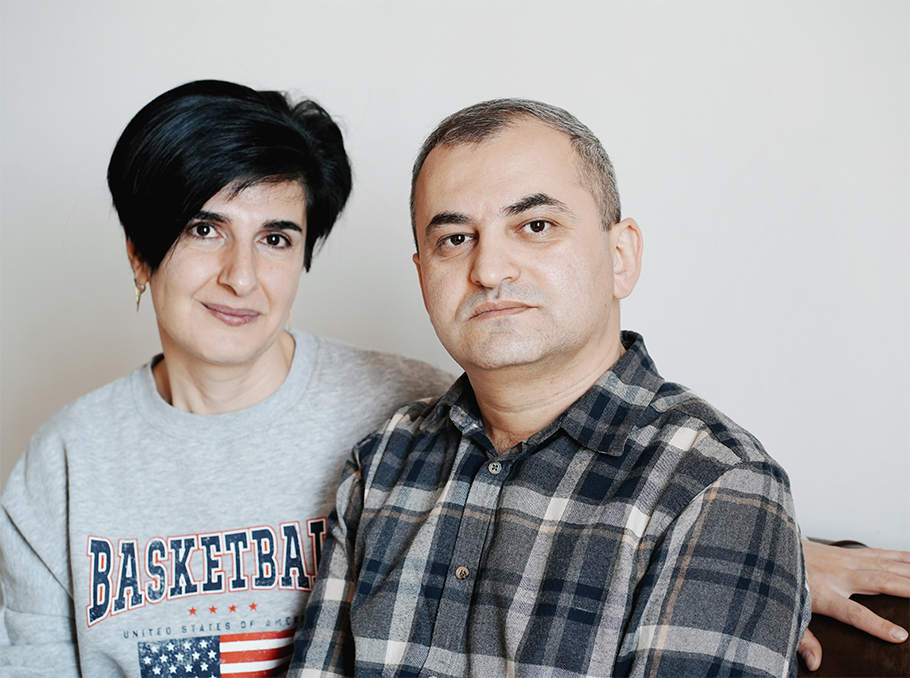






Comments
Dear visitors, You can place your opinion on the material using your Facebook account. Please, be polite and follow our simple rules: you are not allowed to make off - topic comments, place advertisements, use abusive and filthy language. The editorial staff reserves the right to moderate and delete comments in case of breach of the rules.